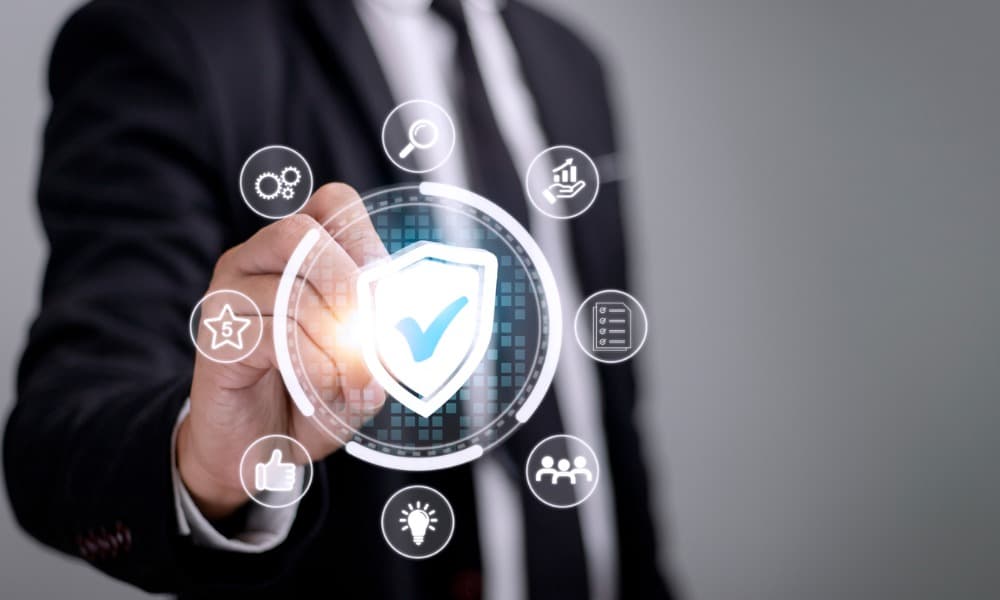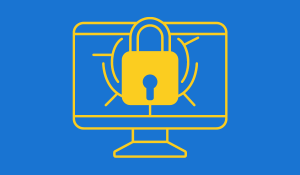In October of 2017, Northern California was set ablaze, creating chaos and confusion for the communities in the surrounding areas. At that time, no one was ready for a natural disaster of that magnitude. Even after the initial threat was over, businesses struggled to get back to normal.
Since those fires, California has been thrown through more crises. Businesses have been quick on their feet to adapt to the ever-changing environment, but it is time to plan for the next fire crisis. It is fire season again, and with everything else going on, it may go unnoticed. Nonetheless, having a fire plan for your technology can save your company from downtime and a world of stress.
Think of the fire disaster preparedness plan listed below kind of like “stop, drop and roll.” It will not prevent your network from going down, nor will it guarantee no data loss, but it will minimize the damage to your business, like it did for one of our clients.
Prepare for Fire Plan Part 1: Office Power Infrastructure
It is hard to plan for something you never experienced. So, start with something you have experienced, I.e. power outages. Your building may be far from the physical threat but when power lines go down, your technology is vulnerable. Let’s look at some items all companies should have in case of power outages.
You Need an Uninterruptible Power Supply (UPS)
Most natural disasters do not come with a warning. One minute you are in the middle of writing an important document the next, the power shut off unexpectedly… if you have that computer connected to an Uninterruptible Power Supply (UPS), this will give your employees time to hit save and shut down the machine safely. UPS helps to prevent the loss of data by providing a power backup and can ease your worries about potential harm to your staff as it ensures the equipment is properly grounded.
Always Use Surge Protectors
If you have a large staff and it is not the right time to invest in everyone having a UPS, make sure all your devices are, at the very least, plugged into a surge protector. Surge protectors are to protect devices from power jolts. Without this protection, if there is a surge of energy, your machines can overheat and will not be useful upon your return. If your employees are on-site when the power goes out or when a storm/natural disaster warning is announced, have them unplug all devices that are not essential. Surge protects do not last forever, and if there are a lot of power spikes, they are more likely to fail.
Backup Generators Keep Your Doors Open
If you are working off a physical server, we highly suggest having a backup generator. When your server does not have access to power, your company will not be able to access any of the data on the server. If you do not have a backup generator, make sure to at the very least have a UPS (see above)!
A server shut down without the proper sequence can cause significant issues for your network. The backup power in the UPS will give it enough time to shut down gracefully and give you the option to move it to a location that still has power. You will then contact your IT provider to reconfiguring the devices.
Prepare for Fire Plan Part 2: Protect Your Network
What if the fire is causing more obstacles then just power outages? Here is where talking to your vendors comes into play. Ask them if they have any protocols that they follow when fires occur and if there is anyone you should reach out to in case of an emergency. Know what they cover and what you are responsible for. This is important as being able to reach the right person quickly puts your recovery plan into action faster.
One of our clients experienced an office fire during a holiday in the middle of the night, so they called our after-hours support immediately. Their quick reaction made it possible to get their server back online and even though they were without an office, their employees were able to productively work from home for months until they were able to relocate.
When it comes to protecting your network make sure you speak with your internet provider, IT support, and insurance to make sure you are covered for all possibilities. Your preparedness for fire when it comes to your technology is essential and your Fire Plan needs to make sure it addresses your IT network infrastructure and protection.
Failover Internet Ensures Connectivity
The outages are not affecting your location directly, that is great, but that does not mean you are in the clear. Power does not guarantee you will be able to work smoothly during these scheduled outages. I have found out the hard way. During the last round of power outages, my house never lost power, but I was without internet access. Why? My internet service provider was down! To prevent this from happening in an office environment, we suggest having a failover internet link. This means you will have two internet provides, one that is used every day and one that will only be used if the other connection is lost, creating a safety net that will keep your business online and connected.
Cloud Servers Are Usually Better Than Local Hosting
Imagine being able to get the heck out of Dodge within minutes, and not having to worry about anything in your server room. Moving to a cloud server gives you this benefit, as well as increased traffic capability, reduced infrastructure overhead, and provides the ability to set up a disaster recovery system. If your employees have Internet access, they will be able to work off your servers. Bottom line, you may want to have public or private cloud servers, or both depending on the best IT setup for your business model and mission.
Fire Suppression Systems Can Save Your IT Infrastructure
If your company uses a physical server or rely heavily on technology, investigate what type of fire suppression systems your building should be equipped. An active chemical-based system works better with technology as it causes minimal damage to that technology. When water sprinklers go off your computers and servers may get ruined. And putting your servers in an encasing, covering, and elevated rack, will further limit damage as well.
Preparedness for Fire Is Essential
If you are in a high-risk area, we suggest looking into a personalized plan. Knowing that if a fire happens, your network is not going up in flames takes a weight off your shoulders and allows you to sleep better. Calling an IT provider to get your network assets protected does not mean you have to do a system overhaul. You just need peace of mind around your fire plan that provides you the confidence to purchase a few items over time instead of rebuilding in an emergency.
Fire plans are not one size fits all! You should contact your IT provider or get an IT assessment to see what would work best for your current setup.



/ptroendly.jpg)
